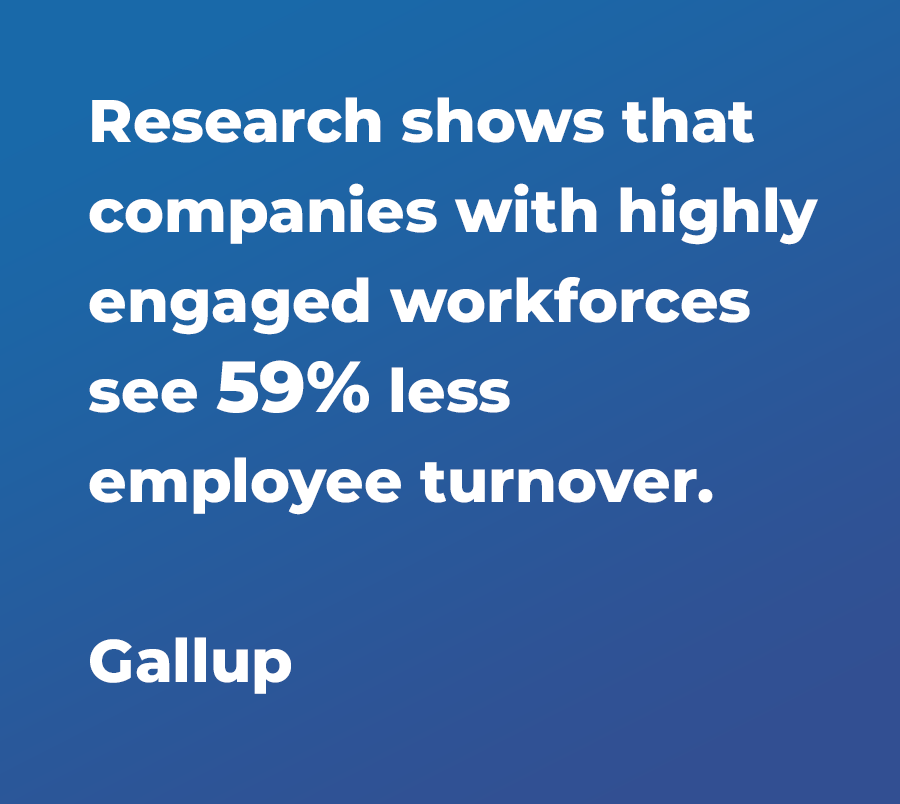
Gallup research shows that companies with highly engaged workforces see 59% less employee turnover. Why is employee engagement so important?
The first thing to remember: employee engagement is not about employee satisfaction or happiness. Employee engagement is about employees who demonstrate an emotional commitment to the organization and its goals. It is about the customer service representative who truly cares about her work and her company. It is about managers who don’t work just for a paycheck or the next perk. It is about all levels of employees who work on behalf of the organization’s goals and vision.
Additionally, employee engagement is important because of the costs that occur when people are not engaged in the workplace. It is estimated that U.S. businesses lose $400 billion a year because of disengaged employees. At companies where there is a high level of employee disengagement, there is typically higher turnover, more accidents, more absenteeism, and poor customer service.
Developing a company culture that cultivates engaged employees has an impact on important business measures. Research by Towers Watson shows that companies with engaged workers have 6% higher net profit margins. What is one of the most effective ways to increase employee engagement?
Research shows that providing training opportunities is one of the most effective ways to increase employee engagement. The reasons are as follows:
- Skill Development: Training programs allow employees to enhance their skills and knowledge, making them feel more confident and competent in their roles. This increased proficiency can lead to higher job satisfaction and engagement.
- Career Development: Employees value companies that invest in their professional growth and development. Training programs provide opportunities for career advancement and progression, which can increase motivation and engagement.
- Recognition: Offering training demonstrates that the company recognizes the importance of investing in its employees’ growth and success. This recognition can foster a sense of loyalty and commitment among employees.
- Challenging Work: Training often involves learning new skills or tackling complex problems, which can make work more interesting and engaging for employees. They are more likely to feel motivated and fulfilled when they are continuously learning and growing.
- Retention: Employees are more likely to stay with a company that invests in their development and offers opportunities for advancement. Training programs can help improve employee retention by providing a clear path for career growth within the organization.
- Team Building: Training programs often involve group activities or workshops, which can strengthen relationships among team members. A supportive and collaborative work environment can contribute to higher levels of engagement.
- Adaptability: In rapidly changing industries, ongoing training ensures that employees stay updated on the latest trends, technologies, and best practices. This adaptability can lead to increased job satisfaction and engagement as employees feel better equipped to handle new challenges.
At WaterWorkorce, we assist with staffing and provide training that keeps employees engaged. We also offer expert operational consulting that covers CPO oversight, regulatory compliance, maintenance, asset management, SOP development, and project management.
For more information, contact:
Bret Kadel
CEO WaterWorkforce, Inc.
Email: bretk@waterworkforce.com

